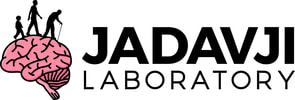|
By: Nafisa Jadavji, PhD
As a scientist I have been mentored throughout my different stages of training and continue to be mentored. The mentoring relationships I have formed throughout my lifetime have been priceless. I am also a mentor and I think it is so important – this past year I helped professional students mentor undergraduate women. Through my experiences and what I observed this year, I wanted to share what I think works for a healthy mentoring relationship. There is a lot of effort to inspire women to study and work in STEM, however the continuation of alienation from fully engaging in science related fields still occurs for women, I have seen this happen at all stages. I think mentoring and forming a community both play an important role in keeping women in STEM. The benefits of being a mentor are vast, they include showing the ropes and sharing resources. In academic research and STEM there is a hidden curriculum which is described by education scholars as the set of tacit rules in a formal educational context that insiders consider to be natural and universal – I was a first-generation student. Mentors helped teach this and make academic research more accessible to me as well as for those that don’t know the hidden curriculum. Being a mentor also provides an opportunity to share experiences, including the good and bad. Mentors act as a sounding board and enriching education experience and the ability to network. As a mentor, I have improved leadership capacity and sharpened my communication skills. I have also become exposed to different thoughts and opinions. Pay it forward – in my opinion this is so important. I think it is important to begin the relationship with a needs assessment that establishes expectations and articulates desired outcomes. Set clear boundaries and guidelines at the beginning: How often will you meet? Will you be discussing research issues, career development, personal problems, or all three? Are any topics off-limits? Strive for clear and effective communication. Give honest and objective feedback. Be encouraging and motivating, but also be realistic. Challenge your mentee to think broadly and to consider all opportunities. Maintain confidentiality to build a relationship based on trust. Create a judgment-free zone. Keep in mind that you are mentoring not just a woman in STEM, but a whole person who likely has competing professional and personal priorities. Be sensitive to this complexity and be prepared to help with time management suggestions or tips for overcoming guilt and anxiety. Recognize that your mentee may have needs, goals, values, and priorities that differ from your own. Be approachable and accessible. With collaborators I have written an article that describes how to build and sustain mentor interactions. I hope that this article is useful to you. Please feel free to leave a comment!
0 Comments
Leave a Reply. |
Archives
December 2023
Categories |

 RSS Feed
RSS Feed